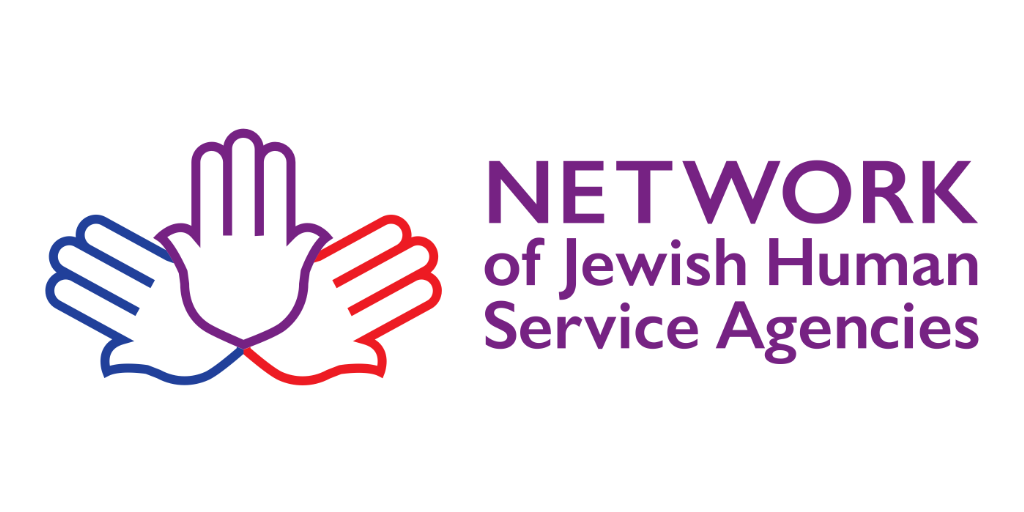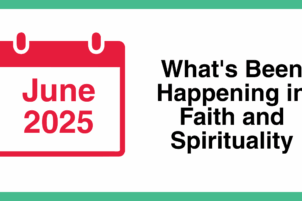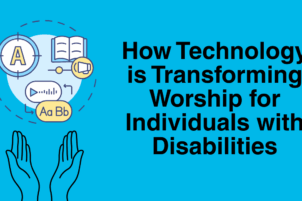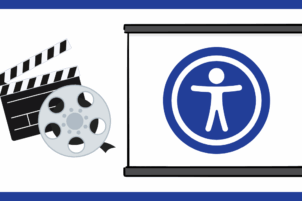 We often save this space for other voices, but in addition to being the editor of this newsletter, I am also a Jew with a disability, and today I want to share with you my perspective on the power of togetherness. RespectAbility is proud to be a member of the Network of Jewish Human Service Agencies (The Network). The Network is a national nonprofit that was established following the 2017 merger of the Association of Jewish Family and Children’s Agencies (AJFCA) and the International Association of Jewish Vocational Services. With an active membership of just under 150 community-based Jewish human service agencies throughout the US, Canada and Israel, the Network has established the following as its mission: The Network advances the Jewish human service sector through advocacy, best practices, innovation and partnerships.
We often save this space for other voices, but in addition to being the editor of this newsletter, I am also a Jew with a disability, and today I want to share with you my perspective on the power of togetherness. RespectAbility is proud to be a member of the Network of Jewish Human Service Agencies (The Network). The Network is a national nonprofit that was established following the 2017 merger of the Association of Jewish Family and Children’s Agencies (AJFCA) and the International Association of Jewish Vocational Services. With an active membership of just under 150 community-based Jewish human service agencies throughout the US, Canada and Israel, the Network has established the following as its mission: The Network advances the Jewish human service sector through advocacy, best practices, innovation and partnerships.
I spent most of this week at the Network’s virtual national conference. I wasn’t sure what to expect apart from a lot of Rabbis, since Neshama, the National Jewish Chaplaincy Network, has also joined the Network. I knew that like every Jewish conference, even recent virtual ones, there would be awards given to exemplary people, at least one inspiring artistic performance, and even swag which had been FedExed to us in the weeks before. At the same time, I knew that I often have trouble connecting meaningfully to Zoom based programming from my desk in Los Angeles, so I really wasn’t sure whether I would connect with the conference.
I’m happy to say that the week far exceeded my expectations. There was in fact an inspiring musical performance, and I clapped loudly at my screen as leaders in human service were given awards. But most importantly, through skillful use of breakout rooms and facilitated discussion, I had meaningful interactions with colleague after colleague. It’s amazing there were so many ways in which we supported each other. In a session about motivating human service professionals in the latter days of the pandemic, people were giving each other real advice in the small groups as they shared the problems that their agencies were experiencing. “Give people enough time to get bored, once the workload permits.” “Build an emotional support team, not only for clients, but for each other.” These were just a few of the valuable pieces of advice that executives were giving each other.
In the session on advocacy, a specialty of RespectAbility, I was able to offer expertise to several small agencies, and in a later session, had a fruitful Zoom dialogue about disability data in Jewish demographic studies, for which we have already planned a follow-up.
In one of the most meaningful sessions, we collaborated and traded strategies on addressing the pressing challenges of our agencies, from funding innovative programs to pursuing our DEI goals. The really powerful thing in this session was that there was no outside “expert,” just people from different agencies sharing their experience. When one of us expressed a challenge in getting particular staff members to engage, an experienced operating officer shared the importance of multiple modes of education, from webinars to coaching to even gamification. Another relayed the importance of coworkers personalizing the narrative, assuming that they were willing to do so, by sharing their own experience of micro-aggression. It was all actionable and grounded in the lived experiences of the people present.
I had come into the week expecting that the distance of the Zoom screen would prevent meaningful collaboration. Instead, the intimacy and quiet of the Zoom room, with everyone face-to-face, had no background noise or distractions and promoted a level of candor and dialogue that I have never seen before at an in-person conference breakout. We brought to a group of strangers a level of trust that is normally more likely to appear in a stolen hallway conversation at an in-person conference.
I don’t want the main takeaway of this perspective to be that virtual collaboration is powerful, as interesting as that may be. Rather, what I want to focus on is the power of bringing together a network of colleagues and discussing real issues and strategies. We shared our expertise with each other, hopefully making our agencies stronger.
This is the true value of the Network. It’s the bringing together of collective wisdom and success. It is something that those of us in the disability space can emulate, and I hope that we do.







